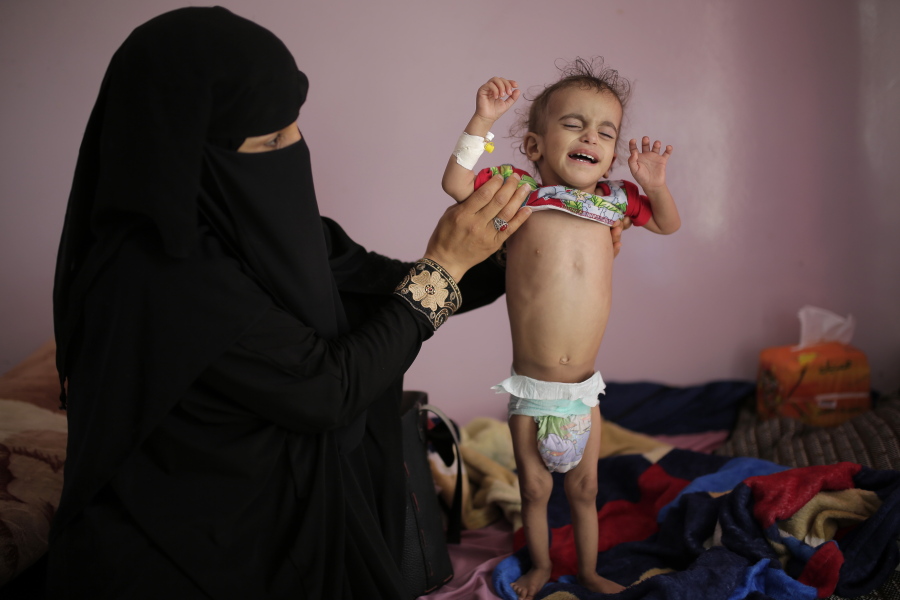The head of the U.N. food agency warned after a visit to Yemen that his underfunded organization may be forced to seek hundreds of millions of dollars in private donations in a desperate bid to stave off widespread famine in coming months, describing conditions in the war-stricken nation as “hell.”
The World Food Program needs at least $815 million in Yemen aid over the next six months, but has only $300 million, the agency’s executive director, David Beasley, told The Associated Press in an interview. He said the agency would need another $1.9 billion to meet targets for the year.
Beasley visited Yemen earlier this week, including the capital of Sanaa which is under the control of Iran-backed Houthi rebels. He said that at a child malnutrition ward in a Sanaa hospital he saw children wasting away from lack of food. Many, he said, were on the brink of death from entirely preventable and treatable causes, and they were the lucky ones who were receiving medical care.
He said the world needs to wake up to how bad things have gotten in Yemen, particularly for the country’s youngest, some of whom he had seen in hospital beds in the Sanaa hospital.
“In a children’s wing or ward of a hospital, you know you normally hear crying, and laughter. There’s no crying, there’s no laughter, there’s dead silence,” he said late Tuesday, speaking to the AP by video conference from Addis Ababa, Ethiopia, where he had just landed from Yemen.
“I went from room to room, and literally, children that in any other place in the world would be fine, they’d might get a little sick but they’d get recovered, but not here.”
“This is hell,” he said. “It’s the worst place on earth. And it’s entirely man-made.”
The U.N. has warned that 16 million people in Yemen — or about half the population — could face serious food insecurity. Tens of thousands of people already live in famine-like conditions, in what aid organizations have called the world’s worst humanitarian crisis. Some 400,000 children are in need of immediate assistance to save their lives from deadly malnutrition. Worsening fuel shortages could throw millions more into deep poverty.
Since the outbreak of Yemen’s civil war six years ago, U.N.-led aid efforts have been chronically underfunded. This year’s global fundraising drive came up short as well — more so than in previous years — because aid dollars have been shrinking as a fallout from the coronavirus pandemic.
A pledging conference last month raised a little more than half from the international community of what was needed to continue food aid services for the next year.
Yemen, already the Arab world’s poorest country, has been caught in a grinding war since 2014 when the Houthis descended from their northern enclave and took over Sanaa, forcing the internationally recognized government to flee. In the spring of 2015, a U.S.-backed, Saudi-led coalition began a destructive air campaign to dislodge the Houthis while imposing a land, sea and air embargo on Yemen.
Throughout the conflict, humanitarian agencies have faced obstacles in getting aid to those who need it most, particularly in Houthi-controlled territories; obstruction, distrust and fighting have played a role.
Beasley said his organization has made gains on these fronts particularly in access and accountability with the Houthi authorities, and now the obstacle is simply a lack of funding.
“We’ve turned a corner with the Houthis… in terms of cooperation, collaboration,” he said.



